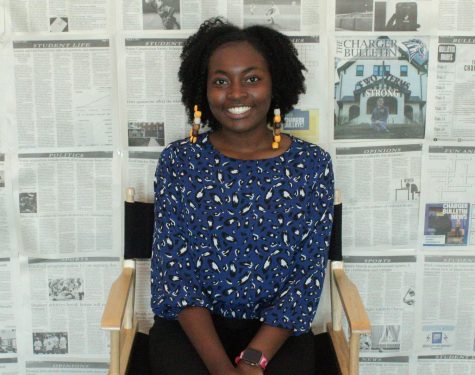Should the COVID-19 vaccine be mandatory or optional?
For over a year, the COVID-19 pandemic has raged the world with deaths, terror and fear, and continues to impact the changing sense of normalcy. Many industries that once thrived in in-person settings, environments and industries, such as tourism and hospitality, have fiercely transitioned or ceased services. As a result of the pandemic, there has been an increased reliance on telecommunications. This includes platforms such as Zoom, Microsoft Teams and many other platforms. But for most people, there is a strong desire to get back to a sense of normalcy. But in order to return to normalcy, people must be willing to receive the COVID-19 vaccine.
The university COVID-19 Task Force has sent important email updates in regard to the upcoming fall 2021 semester. The classroom guidelines for social distancing will decrease from six feet to three feet, there will be more on-ground classes and events for incoming freshmen, such as Family Day and Charge-In, which will help foster more social relationships. However, in regard to vaccine protocols and policies, there is an increased move for students, faculty and staff to receive the current two-dosage COVID-19 vaccine. As examined throughout the campus there are lawn signs placed that state why staff and students took the vaccine.
For many students, receiving the vaccine is a difficult choice to make. Freshman business management major Anna Katz took the Pfizer vaccine. She said, “I want to stop the spread of COVID and protect myself, my family, friends, and peers around me.”
Like Katz, I wish to help protect my family, friends and the university community. On April 12, I went to the Floyd Little Athletic Center to get my first shot of the Pfizer COVID-19 vaccine. I was nervous because I was unsure of how my body may react to the dosage, but I knew that this was the right thing to do to ensure that any possible spread of COVID-19 is kept to a minimum. Some days after receiving my first dosage, my left arm felt sore, but I was not in any excruciating pain. Currently, I plan to receive my second dosage on May 4. Although I am the first in my immediate family to receive the vaccine, I am firmly aware of the skepticism behind the vaccines. Some believe that it will make women infertile, and others believe there are bits of technology implanted to track someone for the rest of their lives.
However, sophomore communication major Stephen Gangi believes in the positivity of the vaccine. He said, “Honestly, I fully support the idea of making the vaccine mandatory for private organizations as I believe they have the ability to do so by law, however, in my opinion, I do not believe that anything should be forced upon someone when it comes to their body.”
Similar to the students, I don’t favor the idea of making the vaccine mandatory. I believe that it is up to every individual to make this decision for themselves. On April 27, the Connecticut Senate passed the bill to remove religious exemptions for childhood vaccinations. This decision would result in Connecticut children taking vaccines even if it is against their religious beliefs. These types of decisions I believe restricts and constrains Americans’ individual rights and moral beliefs. Yet, I am also conflicted that when people are given the option to accept or reject receiving the vaccine, they will become careless of the need to abide by COVID guidelines. I fear that as more people get the vaccine, those who are not vaccinated may rely or “free-ride” on those that are vaccinated. However, there is also a possibility that as more people get vaccinated, this will encourage others to get vaccinated. This dilemma may be two sides of the same coin, but with completely different outcomes.

Kiana White is a sophomore studying business management with a concentration in human resources. She also has a double minor in English and communication....




